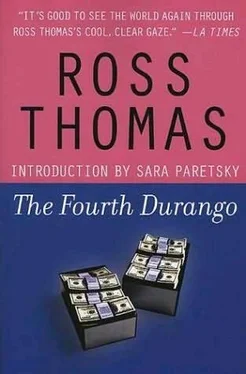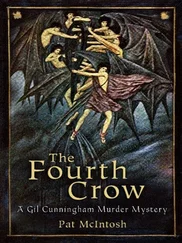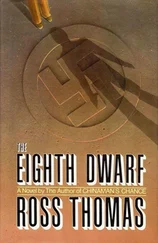
Ross Thomas
The Fourth Durango
.
© 1989
by Sara Paretsky
Ross Thomas inhabited a world of romantic cynics-people who made no bones about living on the shady side of the street but who wouldn’t tolerate true malevolence. Bribery, sure, blackmail, yes, but not the murder of innocents. Sometimes he killed off a beloved hero, but good did triumph in a way it usually doesn’t in the world the rest of us live in.
In person Thomas seemed like Clark Kent-his mild, unassuming manner concealed a pen of steel. In fact, like Clark Kent, Ross Thomas did start his writing life as a reporter. He was a sports journalist before serving with the U.S. infantry in the Philippines during World War II; at war’s end he was a diplomatic correspondent for the Armed Forces Network, in Bonn and Washington. He worked in public relations and then turned his hand to managing election campaigns.
Thomas’s clients were as odd a collection as ever existed outside the pages of one of his own novels: a Nigerian tribal chief trying to become the country’s first post-colonial prime minister (the man lost and spent a lot of years in prison); the president of the National Farmers Union, running for re-election (he also lost but didn’t do time); and George McGovern.
Thomas said of his own work that he’d “sat in the room where the deals were cut.” His experience in politics and journalism shows up again and again in his fiction, and the deals that are cut are unusual ones indeed.
The Fourth Durango features an entire cast of tricksters, molesters, and hustlers. When Jack Adair, an honest politician who’s been framed on a bribery charge, is released from federal prison, he knows he’s a murder target: whoever set him up wants him dead. Until he can figure out who’s behind the frame-up, he needs a place to hide. His longtime lawyer, friend-and son-in-law-Kelly Vines, finds just the place: the tiny town of Durango, California. The fourth Durango, “The City That God Forgot,” is run by two vintage Thomas con artists: Sid Fork, the chief of police, and Barbara Diane Huckins, the mayor.
Because God forgot the fourth Durango, Mayor Huckins has to raise money for public services in unusual ways. She and Fork do a deal with Adair and Vines-privacy and protection for a large sum of cash-but before anyone can blink, Durango has become an international crime hub. Suddenly, Chicago in the Twenties has nothing on this tiny town for drive-by shootings, holdups, people dropping dead in elevators.
To say more would be to give away too much. All I can do is warn you that every word in this book counts. If you are surprised at the end-as I was-it’s because you read it the way I did: you wanted to see what happened next, and who was going to say what clever offhand thing, and you forgot that Ross Thomas’s hand was quicker than your eye. So pay attention: every casual anecdote in this story is there for a reason. Every walk-on character mentioned over the vast quantity of booze they’re all drinking plays a role in the con.
Ross Thomas came relatively late to the world of fiction. He wrote his first novel, The Cold War Swap, when he was forty and had six free weeks between jobs. In the next twenty-nine years he wrote twenty-five novels and an autobiography, several screenplays, and a constant stream of essays and reviews. He was a man of intense passion, indeed, a deep rage for the foulest deeds people do to each other-often in the name of ideals like liberty or religious faith. He somehow managed to disguise his rage beneath a patina of irony, but he never let readers forget that true villainy doesn’t lie in sex or even money. True villainy lies in betrayal, torture, and violation of the spirit.
Stephen King once called Thomas “the Jane Austen of the political espionage story,” an odd compliment from one thriller writer to another. But it’s an apt one: despite the deaths and misdeeds in Thomas’s work, we aren’t treated to graphic erotogenic violence. Everything is done almost politely; like Austen, Thomas could skewer a character, and a society, in a seemingly innocent throwaway line.
Thomas wrote in the long tradition of the American crime novel, with its roots in the American western: justice, real justice, has been taken over by those with money, power, and no regard for the common good. Into this world comes the eccentric outsider, or in Thomas’s case, a whole gang of eccentric outsiders, who outwit and overturn the money-and-power boys. Raymond Chandler described this kind of hero best when he said, “Down these mean streets a man must go who is not himself mean, who is neither tarnished nor afraid… He must be a complete man and a common man and yet an unusual man.” Thomas’s heroes-and heroines-had plenty of tarnish on them, but they were never mean.
Thomas’s experience in the world of the real, from the Pacific islands (brought beautifully to life in Out on the Rim ) to Nigeria (featured in The Seersucker Whipsaw ), kept him from sentimentality. But his loner, loser, down-on-their heels heroes do triumph, in wonderful, almost surreal fashion. And the triumph leaves us readers feeling a little more hope than we did when the story began. As the master trickster of us all wrote in Twelfth Night, “If this were portrayed upon a stage now, I could condemn it as improbable fiction.” How much I wish Thomas were here today, now, taking the horrors of our age and turning them into more of his improbable fiction.

When the white bedside telephone rang at 4:03 A.M. on that last Friday in June, thethirty-six-year-old mayor answered the call halfway through its fourth ring and kicked the thirty-nine-year-old chief of police on the ankle to make sure he too was awake.
After a muttered hello, the mayor listened silently for a minute and a half. She listened with mouth grim and eyes narrowed, forming what the chief of police had long regarded as her pothole complaint look. Once the ninety seconds were up, the mayor ended the call with a peremptory “Right” that was little more than a farewell grunt.
As the mayor listened, the chief of police had occupied himself with another inspection of the bedroom’s textured ceiling, wondering yet again why the sprayed-on stuff always wound up looking like three-week-old cottage cheese. The moment the mayor put down the telephone, the chief closed his eyes and asked, “Dixie?”-sleepiness and the hour robbing the question of any real curiosity.
“Dixie,” the mayor agreed.
“And?”
“She just tucked him into bed.”
“How much did he drink?”
“Dixie says the bar.”
“Then it’s all set, isn’t it?” the chief said, opening his eyes to give the yellowed ceiling a final inspection while awaiting the mayor’s reply. When none came, he nodded-as if at some unspoken but reassuring answer-and apparently went back to sleep.
Lying on her left side, the mayor examined the chief with mingled wonder and resentment. Soon tiring of the examination, she rolled over onto her back and closed her pale gray eyes, but they popped open almost immediately and she found herself posted to ceiling sentry duty from which sleep failed to relieve her until just before dawn.
Kelly Vines awoke at 10:09 A.M. on that same last Friday in June. He looked first for the black cane then for the blond-all-over woman who had said her name was Dixie. Vines couldn’t remember her last name or even if she had mentioned it, but he did recall those mocking blue eyes and her wry observation that they were checking into the only money-losing Holiday Inn west of Beirut.
Читать дальше














